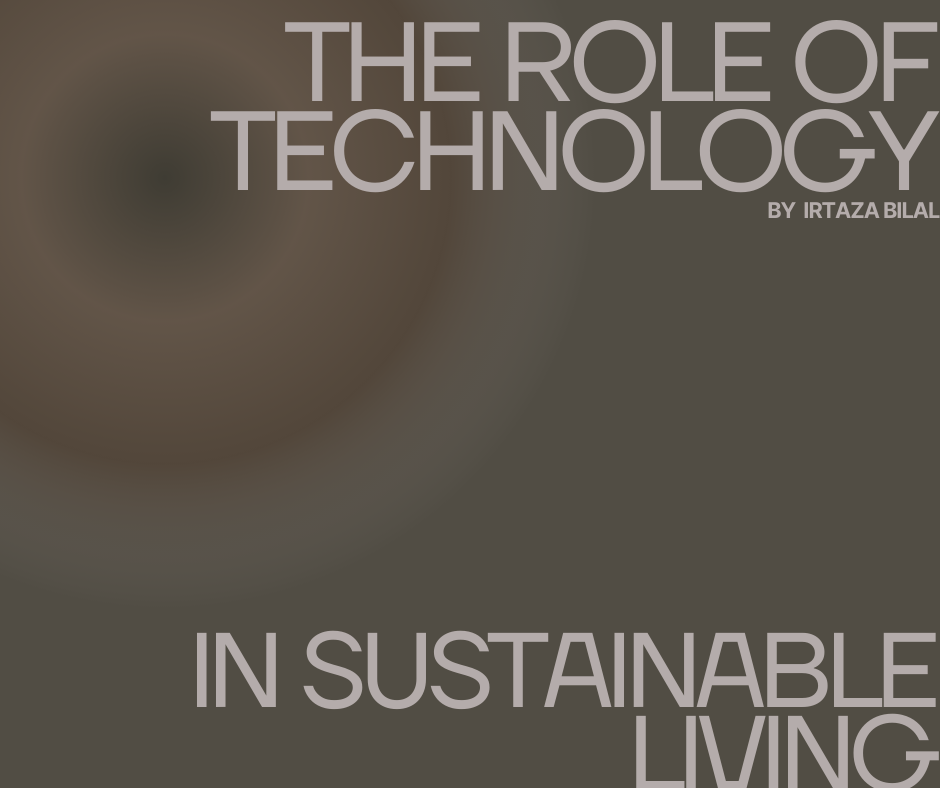In an age where climate change and environmental degradation are becoming increasingly pressing issues, the concept of sustainable living has gained significant traction. Sustainable living entails making conscious choices to reduce our impact on the environment, conserve natural resources, and create a better future for generations to come. Technology, with its ever-evolving innovations, plays a pivotal role in driving and enabling sustainable living. In this blog, we will explore the multifaceted ways in which technology is shaping and revolutionizing our approach to sustainability.
- Renewable Energy Revolution: #CleanEnergy #RenewableTech
One of the most notable advancements driven by technology is the proliferation of renewable energy sources. Solar panels, wind turbines, and hydropower systems have become more efficient and cost-effective, allowing individuals and communities to generate their own clean energy. Additionally, smart grids and energy storage technologies enable efficient distribution and utilization of renewable energy, reducing our reliance on fossil fuels and lowering greenhouse gas emissions.
- Energy-Efficient Homes: #SmartHomes #EnergySavings
Smart home technology has empowered homeowners to significantly reduce their energy consumption. technology makes it easier than ever to optimize energy use within our homes. This not only reduces energy bills but also lessens our carbon footprint.
- Sustainable Transportation: #EcoMobility #ElectricVehicles
The automotive industry is undergoing a green transformation, thanks to electric vehicles (EVs) and sustainable transportation solutions. Electric cars, powered by advanced battery technology, produce zero tailpipe emissions and reduce air pollution. Furthermore, ride-sharing platforms and innovative transportation apps contribute to the promotion of eco-friendly commuting options, including carpooling and public transport.
- Waste Reduction and Recycling: #WasteReduction #RecyclingTech
Technology has introduced smart waste management systems that optimize collection routes and improve recycling processes. Waste-sorting robots can identify and separate recyclable materials, while apps and online platforms help users locate nearby recycling centers. These innovations not only reduce landfill waste but also promote a circular economy by reusing valuable resources.
- Agriculture and Food Sustainability: #AgTech #SustainableFood
Precision agriculture, aided by technology, allows farmers to optimize crop yields while conserving resources such as water and fertilizers. Vertical farming and hydroponic systems make it possible to grow food in urban environments, reducing the need for long-distance transportation. Additionally, blockchain and food traceability apps provide consumers with information about the origins and sustainability of their food choices.
- Conservation and Biodiversity Protection: #ConservationTech #Biodiversity
Technology plays a crucial role in wildlife conservation efforts. AI-powered algorithms help analyze large datasets to detect illegal logging and poaching activities. In marine conservation, underwater robots and satellite tracking enable scientists to study and protect marine ecosystems.
- Sustainable Fashion: #EcoFashion #FashionTech
The fashion industry is becoming more sustainable through the integration of technology. 3D printing allows for on-demand and customized clothing production, reducing waste. Sustainable materials and textiles, such as recycled plastics and organic fibers, are being used more widely. Furthermore, blockchain is being used to provide transparency in the fashion supply chain, helping consumers make informed choices about ethically produced clothing.
- Environmental Monitoring and Awareness: #EnvironmentalTech #EcoAwareness
Technology empowers individuals and organizations to monitor environmental conditions and raise awareness about pressing issues. Therefore, Apps and sensors provide real-time air quality data, enabling people to make informed decisions about outdoor activities. Social media and digital platforms amplify environmental campaigns, fostering a global community of eco-conscious individuals.
Conclusion: Embracing Technology for a Sustainable Future
The role of technology in sustainable living cannot be overstated. From harnessing clean energy to transforming how we travel, consume, and live, technology is an indispensable tool in our journey towards a more sustainable and eco-friendly future. Finally, By embracing these innovations and actively participating in sustainable practices, we can collectively work towards a healthier planet for ourselves and future generations.
So, whether you’re installing solar panels on your roof, driving an electric car, or simply using a recycling app, remember that your individual choices, amplified by technology, can have a significant impact on creating a more sustainable world.
#SustainableLiving #TechnologyForGood #GreenTech #EcoFriendly #ClimateAction

